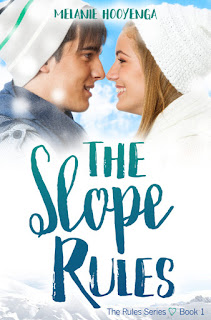We asked two indie authors from SCBWI-MI to share their success stories. Thanks to Melanie Hooyenga for sharing her experience with contests and to David Stricklen for his experience with professional reviews. Read on for their hard-earned perspectives.
Enter At Your Own Risk
by Melanie Hooyenga
One option that I don’t feel gets enough attention is contests. Like most anything else in the world, not all contests are created equal, and you have to a) do your research, and b) know what you hope to get out of entering.
My first novel, Flicker, had been out for over a year when I heard about the Writer’s Digest Self-Published eBook Awards. A writer friend encouraged me to enter, so I submitted my book, paid my $99 entry fee, and promptly put it out of my mind—as you do with anything in the publishing industry because it’s soooo slooooowwww.
Imagine my surprise when I learned I’d won the YA/MG category! Winning came with a mention in Writer’s Digest, a review that I could blurb, $100 in writing-craft books, and a $1000 cash prize. All of this was more than I ever expected, and the one part that I felt helped me the most was the blurb. Having Writer’s Digest say that I was good enough boosted my confidence in the decisions I’d made with my writing career.
My marketing efforts for my first series were lackadaisical at best, so when I published the first book in my second series, The Slope Rules, I decided to follow a marketing plan. Aside from boosted posts, blog hops, and creating an ARC group, I researched contests.
I started with contests my friends had won, and came up with six. My criterion:
- They allowed self-published books
- The covers of past winners were well-done and didn’t scream “self-published”
- The entry fee was under $100
- All books received a review, regardless if they won
That first year, I won or placed in three of the six contests I entered (hooray!!) so with my next book, I only entered the contests where the previous book had been successful. And I won or placed in those as well! With The Edge Rules, the last book in the series, I only won/placed in two of those three, but I entered several new contests and have won a couple of those. AND, for the first time, I was a finalist in the BookLife Prize, which is the self-publishing arm of Publishers Weekly! I won the YA/MG category and best-selling author Amanda Hocking read and blurbed my book.
When researching contests, it’s important to determine what’s in it for you. Some have awards ceremonies, some give trophies or certificates, others award money or an equivalent, and some feature winners in their publications. Ultimately it comes down to what you want out of the process. Since my number one goal has always been an industry review, that’s what I’ve focused on.
Contests in which I’ve won or placed:
- Indie Reader http://indiereader.com/
- Moonbeam Children’s Book Awards http://www.moonbeamawards.com/
- Readers Favorite Book Awards https://readersfavorite.com/annual-book-award-contest.htm
- Children’s Literary Classics http://www.clcawards.org/
- Writer’s Digest Self-Published eBook Awards https://www.writersdigest.com/writers-digest-competitions/self-published-book-awards
- BookLife Prize https://booklife.com/about-us/the-booklife-prize.html
- Orange County RWA Book Buyers Best Awards http://occrwa.org/contests/book-buyers-best/
- Indie Excellence http://www.indieexcellence.com/
- IBPA Ben Franklin Awards http://ibpabenjaminfranklinawards.com/
- International Book Awards http://www.internationalbookawards.com/
- Next Generation Indie Book Awards https://indiebookawards.com/enter/entryform
- Independent Publisher Book Awards (Ippy) http://www.ippyawards.com/
This article has a good breakdown of contests for self-published, traditionally published, debut, genre-specific, and more: https://insights.bookbub.com/book-awards/.
If you belong to writing organizations, look into their contests—including regional chapters, even if you aren’t a member of those specific groups. I heard about the Orange County RWA contest through the national newsletter. The Slope Rules won a cover contest in Alaska that I entered that because they said all entries would be displayed at their annual convention—which meant the $15 entry fee placed my book in front of hundreds of people who might never have heard of my book. (And I took a chance that readers in Alaska would like a book with snow on the cover.)
I’ve had success entering contests where past books have been well-received, but that hasn’t worked every time. Like everything else in publishing, tastes are subjective and winning is never a guarantee.
Multi-award winning young adult author Melanie Hooyenga writes books about strong girls who learn to navigate life despite its challenges. She first started writing as a teenager and finds she still relates best to that age group. When not at her day job as Communications Director at a local nonprofit, you can find her wrangling her Miniature Schnauzer Owen and playing every sport imaginable with her husband Jeremy.
You can see the full list of her books and awards here: https://www.melaniehoo.com/media/awards/.
Editor's note: SCBWI provides numerous competitions/awards/grants for members (learn more here) and has not endorsed the contests listed above. Melanie has shared many pros and cons based on her own experience, but as she noted, it's important for every author to do their own research to make the best decisions for their own work. Want to learn more? Here's another post about book awards for self-published authors: https://www.thebookdesigner.com/book-awards/
Melanie discussed the importance of book reviews in her experience with contests. Now, here's David Stricklen, SCBWI-MI's Indie Publishing Coordinator, to share his experience with reviews for his popular self-published books.
REVIEWS FROM AN INDIE PERSPECTIVE
It is all about validation. If you are an indie published author, it will generally be assumed that you are second best until you prove otherwise. I submitted my newest book, Ripley Robinson and the Worm Charmer, to Kirkus Review at a cost of $425.00. Remember, you are paying for an honest review, you are not paying for a good review. What you get is what you get. You will receive a one page review from a respected professional who will read the entire work. You can only hope there is a positive sentence in there somewhere that can be used in promoting your work in a brochure or slide presentation with the Kirkus name on it.
In this case, I lucked out. Kirkus liked it. I received a personal phone call from them and was told that it was a recommended review. My work had also been chosen (at no additional charge) as one of the reviews to go into the October 2019 issue of Kirkus Review magazine. I received a free copy of the magazine and on page 137 was the entire review with a picture of the cover. Let the book orders flow, right? Wrong, there are hundreds of reviews in the magazine and I didn’t see a jump in my website book sales.
What is the benefit then? Again, as stated above, it is for validation. I am able to mention during school visits and seminar presentations that Ripley is a Kirkus recommended book. In this way, I am validated by a respected industry professional and yes, this does help sell books. I routinely outsell the traditional titles at school visits.
Below are a few to try: Midwest Book Review and PW Booklife are free but they may not do a review for you because of the high demand. PW Booklife does have the option to pay for a guaranteed review. I hope this helps.
David Stricklen is the SCBWI-MI Indie Coordinator, Grand Rapids Shop Talk Coordinator and the overall MI Shop Talk Coordinator. Learn more about his middle-grade novels at www.blackwaterpond.com.
Learn more about reviews for self-published books at:
https://www.kirkusreviews.com/indie-reviews/
http://www.midwestbookreview.com/
https://booklife.com/about-us/publishers-weekly-reviews-and-booklife-reviews.html
A variety of critiques are available, and they will sell out quickly. Go here to find the registration link and everything you need to know: https://michigan.scbwi.org/2020/01/07/building-your-nonfiction-toolbox-michigan-scbwi-spring-one-day-event/
Melanie discussed the importance of book reviews in her experience with contests. Now, here's David Stricklen, SCBWI-MI's Indie Publishing Coordinator, to share his experience with reviews for his popular self-published books.
REVIEWS FROM AN INDIE PERSPECTIVE
by David Stricklen
It is all about validation. If you are an indie published author, it will generally be assumed that you are second best until you prove otherwise. I submitted my newest book, Ripley Robinson and the Worm Charmer, to Kirkus Review at a cost of $425.00. Remember, you are paying for an honest review, you are not paying for a good review. What you get is what you get. You will receive a one page review from a respected professional who will read the entire work. You can only hope there is a positive sentence in there somewhere that can be used in promoting your work in a brochure or slide presentation with the Kirkus name on it.
In this case, I lucked out. Kirkus liked it. I received a personal phone call from them and was told that it was a recommended review. My work had also been chosen (at no additional charge) as one of the reviews to go into the October 2019 issue of Kirkus Review magazine. I received a free copy of the magazine and on page 137 was the entire review with a picture of the cover. Let the book orders flow, right? Wrong, there are hundreds of reviews in the magazine and I didn’t see a jump in my website book sales.
What is the benefit then? Again, as stated above, it is for validation. I am able to mention during school visits and seminar presentations that Ripley is a Kirkus recommended book. In this way, I am validated by a respected industry professional and yes, this does help sell books. I routinely outsell the traditional titles at school visits.
Below are a few to try: Midwest Book Review and PW Booklife are free but they may not do a review for you because of the high demand. PW Booklife does have the option to pay for a guaranteed review. I hope this helps.
David Stricklen is the SCBWI-MI Indie Coordinator, Grand Rapids Shop Talk Coordinator and the overall MI Shop Talk Coordinator. Learn more about his middle-grade novels at www.blackwaterpond.com.
Learn more about reviews for self-published books at:
https://www.kirkusreviews.com/indie-reviews/
http://www.midwestbookreview.com/
https://booklife.com/about-us/publishers-weekly-reviews-and-booklife-reviews.html
Registration opens today at 6pm for the SCBWI-MI Spring Conference: Building Your Nonfiction Toolbox.
Don't delay, registration is limited to 100 participants!A variety of critiques are available, and they will sell out quickly. Go here to find the registration link and everything you need to know: https://michigan.scbwi.org/2020/01/07/building-your-nonfiction-toolbox-michigan-scbwi-spring-one-day-event/








Thanks to Melanie and Dave. Back even ten years ago at national SCBWI conferences, you'd never hear about anything but traditionally published authors. But all that has changed. When an editor stood on stage in New York and said that indie publishing was just another route to getting your book out there, the close-minded industry blossomed.
ReplyDeleteDave and Melanie work hard at their craft, and I'm sure they'd tell you that self-publishing has its challenges. But the goal should always be to put the best possible book out into the world.
Thanks Charlie! It's definitely a lot of work but the rewards make it worth it!
DeleteMelanie and Dave, thanks for sharing your views on contests and reviews. There is great value in contests and reviews. We can all benefit from the resources you've shared.
ReplyDeleteI'm glad you found it helpful!
DeleteSuch great information! Melanie and Dave, thank you so much for sharing!
ReplyDeleteYou're very welcome!
DeleteThanks for sharing the info on the contests and reviews. I hadn't really considered entering contests, but it sounds like a great idea.
ReplyDelete